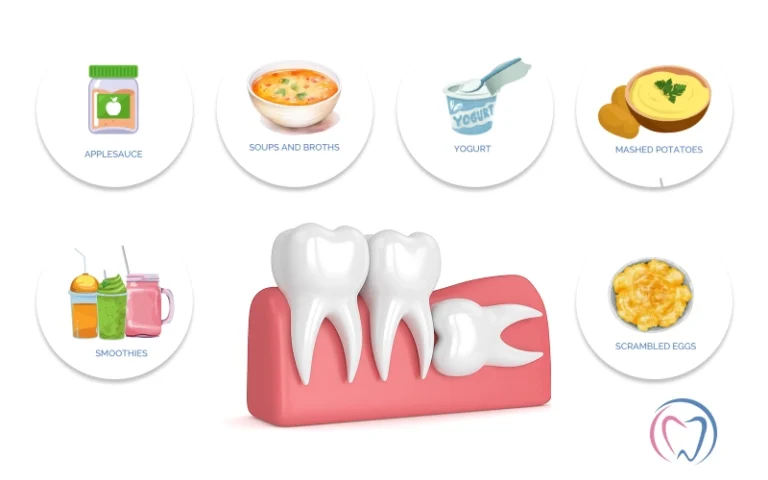Tooth nerve pain can be a common dental problem that can cause significant discomfort and affect the quality of life. By learning about tooth nerve pain, its causes, symptoms and available treatment, you can manage and alleviate the pain more effectively. Because of my tooth nerve pain experience, I used to gather knowledge to relive from it. So this guide gives you an in-depth look at these aspects and practical solutions for immediate relief.
What is tooth nerve pain?
Tooth nerve pain is caused by discomfort in the dental pulp, which is the innermost part of the tooth. The pulp, which contains nerves, blood vessels and connective tissues, is crucial to the tooth’s health.
Severe pain can result from the pulp becoming irritated or infected, which can be either a dull ache or sharp, intense sensations. The pain that arises is typically a sign of an underlying problem affecting the tooth.
What are the causes of tooth nerve pain?
- Tooth decay – The enamel and dentin of the tooth can be eroded by plaque buildup, which can eventually reach the pulp and cause pain.
- Tooth sensitivity – This can be caused by gum recession or enamel erosion, which can expose the dentin and make it sensitive to cold, hot or acidic foods and drinks.
- Dental trauma – The nerve can be damaged and pain caused by dental trauma, such as injuries or cracks in the tooth.
- Gum disease – This can lead to infections and inflammation in the gums that can affect the nerves.
- Cracked teeth – Features or splits in the tooth can expose the nerve, causing significant discomfort.
What are the symptoms of tooth nerve pain?
- A sudden and sharp pain that can be triggered by certain foods or drinks, which is known as sharp, shooting pain.
- Throbbing pain – A persistent, throbbing ache that may be constant or intermittent is known as throbin pain.
- Sensitivity – An increase in the sensitivity to hot, cold or sweet stimuli.
- Swelling – An infection could be indicated by swelling around the gum or face.
- Discolouration – The colour of the affected tooth may change, such as darkening or yellowing, as a result of discolouration.
- Pain when biting – Biting can lead to discomfort or pain when chewing or applying pressure to the tooth.
How can I relieve tooth nerve pain?
There are a variety of methods that can be used to manage tooth nerve pain, including home remedies and professional dental treatments.
Home remedies for immediate relief
- Salt water rinse
- Mix ½ teaspoon of salt with a cup of warm water.
- Swirl the mix in your mouth for 30 seconds, then spilt it out.
- Repeat the action multiple times daily to reduce inflammation and clean the affected area.
- Cold compress
- Wrap ice in a cloth or use a cold pack that is available at a commercial store.
- Apply it to the side of your cheek in the area of pain for 15-20 minutes.
- Allow yourself to rest for at least 10 minutes before reapplying if necessary.
- Clove oil
- Apply a few drops of clove oil to a cotton ball and soak it directly on the painful areas.
- Clove oil has eugenol, which is a natural analgesic that can relieve pain.
- Make sure not to swallow the oil and use it sparingly.
- Peppermint tea bag
- Make a peppermint tea bag by steeping it in hot water, letting it cool and then applying it to the affected tooth for 10-15 minutes.
- Peppermint can soothe and alleviate pain.
- Over-the-counter pain relievers
- To manage pain and reduce inflammation, use non-prescription pain relievers like ibuprofen or acetaminophen as directed by your dosage instructions.
Dental treatments for tooth nerve pain
In case home remedies are not enough or the pain persists, professional dental treatments may be necessary.
- Dental fillings – When tooth decay is the culprit, a dentist will remove the decayed portion of the tooth, clean the cavity and insert a dental material to restore function and prevent further decay.
- Root canal therapy – In the case of severe nerve damage or infection, a root canal is carried out by removing the damaged pulp, cleaning and disinfecting the root canals and then filling them with a special material. To protect the tooth, a crown can be placed over it.
- Dental crowns – When the tooth is severely damaged, it may be necessary to have a dental crown. To repair the tooth and protect it from further damage, the dentist will remove damaged areas, take impressions and apply a custom crown.
- Gum treatment – If gum disease is causing discomfort, treatment options like scaling and root planing or antibiotic therapy may be suggested to address infection and inflammation.
Understanding the causes and symptoms of tooth nerve pain can assist in managing and relieving discomfort, even if it is intense and disruptive. Home remedies such as salt water rinses, cold compresses, clove oil and peppermint tea bags can be used to quickly alleviate symptoms. Professional dental treatments such as dental fillings, root canals and crowns may be necessary if pain persists.
If you are experiencing tooth nerve pain that’s persistent or severe, consult with your dentist to identify the underlying cause and get the appropriate treatment. To prevent future problems, it’s important to take preventive measures like maintaining good oral hygiene and visiting your dentist regularly.







